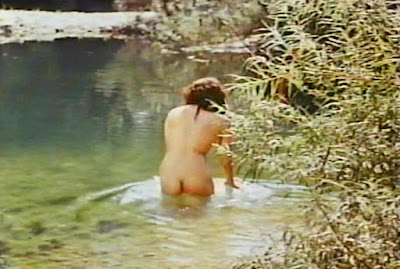Showing posts with label Renoir. Show all posts
Showing posts with label Renoir. Show all posts
June 12, 1970
May 19, 1970
May 16, 1970
Elena et les hommes (1956) ***
Ingrid Bergman stars as a Polish aristocrat who falls in love with a French general. An original comedy set in 1890's France, directed by Jean Renoir.
May 15, 1970
French Can-Can (1955) ****
May 13, 1970
Le Carrosse d'or (1953) ***
A film by Jean Renoir about a European theatrical troupe in colonial-era Latin America.
May 11, 1970
April 17, 1970
April 16, 1970
Diary Of A Chambermaid (1946) ***
Not nearly as good as the 1964's French version directed by Luis Bunuel, but still very compelling.
April 15, 1970
April 13, 1970
This Land Is Mine (1943) ***
Very similar to "Hangmen Also Die", but far more nuanced, realistic and compelling. Often didactic, but at least the ideas it presents are interesting.
The Amazing Mrs Holliday (1943) **
War orphans, Deanna Durbin and China. Jean Renoir began the film, but he wasn't credited for his work.
April 11, 1970
March 19, 1970
La Règle du jeu (1939) *****
 The greatest film of all times. Jean Renoir's masterpiece is a superbly directed comedy that perfectly captures the moral "malaise" of the French society at the eve of World War II. The first part of the film takes place in Paris, where the main characters are introduced. They include the Marquis de la Chesnaye (Marcel Dalio), his wife Christine, her lover Andre and her maid Lisette. There is also Octave (Jean Renoir) - Christine's childhood friend, Lisette's former lover and the friend of both Marquis and Andre. This complex situation is further complicated when everyone is invited by the Marquis to spend a few days in his sumptous palace in the country. After a rabbit hunt, there is a magnificent reception and the film comes to a magnificent climax with guests chasing one another across the palace, while several intrigues unfold simultaneously. Renoir uses a mobile camera to mingle among the characters. Because of this technique, the viewer feels like one of the guests. In one especially remarkable shot, the camera pans across an audience watching a play. It slowly moves from one group to another, making a 180" angle and revealing various activities of different characters taking place simultaneously. Several meticulously arranged scenes show one character chasing another and bumping into a third (who's himself chased by a fourth while dragging a fifth along with him!)
The greatest film of all times. Jean Renoir's masterpiece is a superbly directed comedy that perfectly captures the moral "malaise" of the French society at the eve of World War II. The first part of the film takes place in Paris, where the main characters are introduced. They include the Marquis de la Chesnaye (Marcel Dalio), his wife Christine, her lover Andre and her maid Lisette. There is also Octave (Jean Renoir) - Christine's childhood friend, Lisette's former lover and the friend of both Marquis and Andre. This complex situation is further complicated when everyone is invited by the Marquis to spend a few days in his sumptous palace in the country. After a rabbit hunt, there is a magnificent reception and the film comes to a magnificent climax with guests chasing one another across the palace, while several intrigues unfold simultaneously. Renoir uses a mobile camera to mingle among the characters. Because of this technique, the viewer feels like one of the guests. In one especially remarkable shot, the camera pans across an audience watching a play. It slowly moves from one group to another, making a 180" angle and revealing various activities of different characters taking place simultaneously. Several meticulously arranged scenes show one character chasing another and bumping into a third (who's himself chased by a fourth while dragging a fifth along with him!)
March 18, 1970
La Bete humaine (1938) ***
An excellent example of French "poetic realism" of the 1930's, adapted from a novel by Emile Zola.
March 17, 1970
March 16, 1970
Partie de campagne (1936) ****
Two Parisian women get a short glimpse of true emotions before returning to their suffocating bourgeois life. One of Jean Renoir's greatest films, this 39-minute short was originally planned as a feature.
Le Crime de M.Lange (1936) ****
March 15, 1970
March 13, 1970
Subscribe to:
Posts (Atom)








